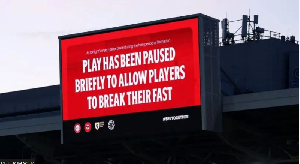Prosecutors, lawyers and their clients were on Tuesday, left stranded as all the courts in the Tema Metropolis shut down following an indefinite strike by the Judicial Staff Association of Ghana (JUSAG) over unpaid allowances.
The Executives of JUSAG on Monday, declared an indefinite strike following government’s failure to pay their outstanding allowances.
A visit to the courts in Tema by the Ghana News Agency on the first day of the strike revealed that prosecutors, lawyers and those who have hearings have been left to their fate as there were no judicial workers to attend to them.
The gates of the Tema courtyard located at Tema Community One which houses two high courts, two circuit courts and a district court were locked with chain and padlocks.
All the court rooms and offices at the premises were also locked, leaving prosecutors to resort to tree shades nearby for rest, while some lawyers were seen discussing the issue among themselves and their clients.
The situation was not different at the TDC and Community Centre district courts.
Some of those who were there for hearing expressed their disappointment at the situation as according to them, they have left their work places to be in court only to meet locked gates.
Mr James Agbenorto, a resident of Tema, who was at the court for hearing, said he was waiting to confer with his lawyer to decide on the way forward.
A prosecutor at the TDC District Court said even though he was present at the place, adjournment dates could not be issued to clients due to the strike and advised them to return to court when the workers resume work.
Nana Kofi Omane, a barrister, expressed regret at the manner the Judicial workers have treated them saying “it does not show respect to lock all of us out”.
He said as much as the workers have the right to demand for their allowances, it was not good to lock everybody out without any formal notification.
Nana Omane suggested that the ideal thing to do was for the workers to at least leave some skeletal staff at the premises to officially inform lawyers and clients of the situation.
He said “it was unfortunate that the workers have reduced everybody to taking information from the media on such an action”.
The Barrister said their action would greatly affect people who have bail hearing during the strike period as they would have to be kept in the cells and prisons until the workers resume work.
Meanwhile, typists and Commissioners of Oath operating near the court were seen going about their normal duties.
Madam Beatrice Annang, a typist, said it was too early for them to feel the effect of strike but it is possible that as the strike prolongs its effects would be felt as documents such as affidavits and indentures, which have to be endorsed by the registrars of the court, would be left hanging.
General News of Thursday, 21 May 2015
Source: GNA













